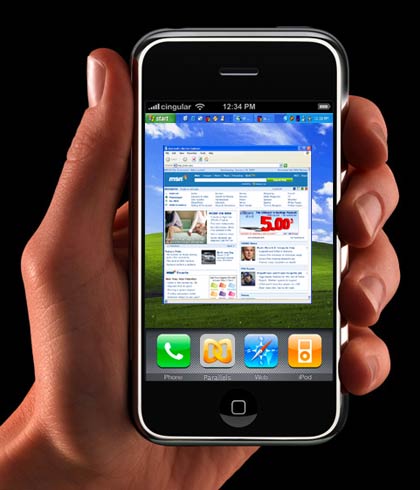 The I-phone is a beautiful thing. And I don't have one yet, so if you're drawing up a Christmas list remember me. But while the I-phone looks nice, it's causing all sorts of problems for those people who don't conform to a "standard accent". And because the I-phone's new voice recognition programme has been based on an American accent (which variety of US accent, I don't know), some British users are getting their wires crossed.
The I-phone is a beautiful thing. And I don't have one yet, so if you're drawing up a Christmas list remember me. But while the I-phone looks nice, it's causing all sorts of problems for those people who don't conform to a "standard accent". And because the I-phone's new voice recognition programme has been based on an American accent (which variety of US accent, I don't know), some British users are getting their wires crossed.The Telegraph reports on it here. We covered a similar story on the blog way back in 2005 when Alex Ferguson, manager of a little-known Northern soccer club, had to return his posh car to be "fixed" as it couldn't understand his melodious tones.
But beyond the silly aspects of these stories, there is serious issue about the whole idea of what is "standard" and what's not. Who decides on what is a "normal" accent? Well, usually those who feel they have the right and the power to make their own accent the norm. So if it's north American software developers today using their own accents as the norm, five hundred years ago it was William Caxton and his printer chums who settled on the dialect of south east England as the standard of their era.
Me, I'm waiting for the cockney phone, which responds to any voice with a slap round the face and a shout of "Millwall".
Useful for:
ENA5 - Language Variation
ENGA3 - Language Explorations

